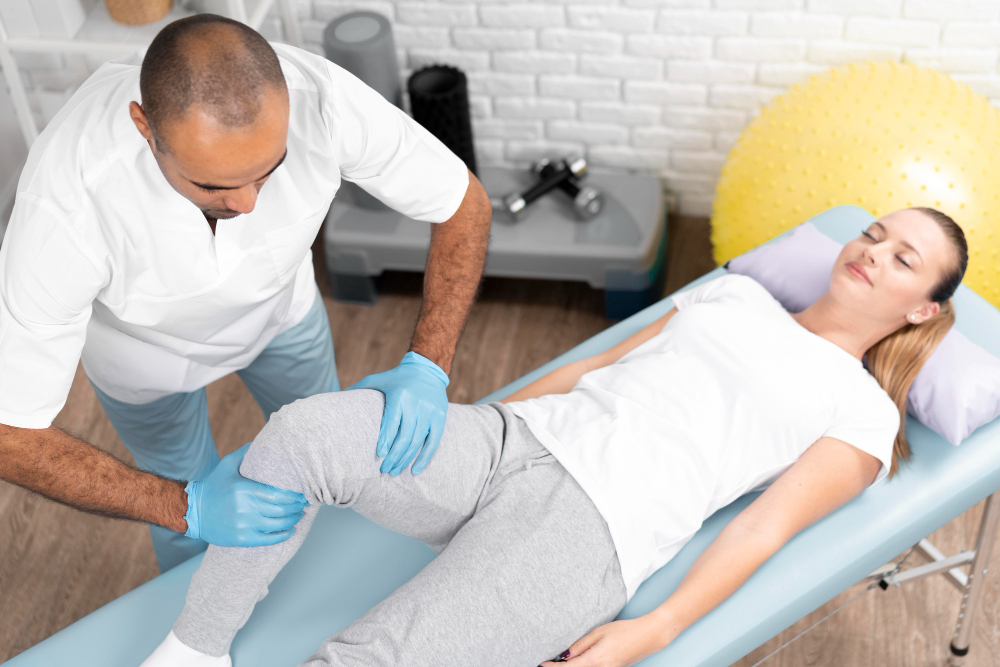Knee and Hip Replacement Care
Get the best Knee and Hip Replacement Care
Surgical knee replacement, sometimes referred to as knee arthroplasty (ARTH-row-plat-tee), may help relieve pain and restore function in knee joints that have been badly damaged by illness. The damaged bone and cartilage from your thighbone, shinbone, and kneecap will be removed during the treatment and replaced with an artificial joint (prosthesis) comprised of metal alloys, high-grade plastics, and polymers.
An orthopedic surgeon will evaluate your knee’s range of motion, stability, and strength to determine whether a knee replacement is an appropriate treatment for you at Knee and Hip Replacement Physiotherapy services Gorakhpur. X-rays help determine the level of damage that has occurred.

Consumables and Medicinal Products
Before going in for surgery, your surgeon or anesthesiologist may recommend that you discontinue the use of some drugs as well as nutritional supplements. On the day of your operation, you will probably be instructed to refrain from eating anything after midnight.
Make Preparations for your return to Health.
If you live by yourself, the personnel at your surgeon’s office or the hospital discharge coordinator may be able to recommend a temporary carer for you. Before the joint arthroplasty procedure is carried out at Vaishno Physiotherapy a Total Hip Replacement Facility in Gorakhpur, a series of examinations and tests are carried out. These tests are as follows:
-
During the physical examination, soft tissues will be evaluated, and the cause of any illnesses and the location of any injuries will be located.
-
Electrocardiography, sometimes known as an ECG, is a test that evaluates the electrical activity of the heart as well as its rhythm.
-
Urinalysis is a screening test for various diseases and conditions, such as kidney disease, diabetes, and urinary system infections. The concentration, content, and look of the urine are all evaluated by the medical professionals using this test.
-
This test, often known as a complete blood count or CBC, offers comprehensive information on the patient’s blood. It provides information on the number of platelets, red blood cells, and white blood cells in the blood. Infectious diseases, blood problems, and cancers like leukemia may all be detected with this test.
-
Imaging tests such as CT scans, X-rays, and MRIs are carried out to get pictures of the flawed bones. This enables surgeons to determine the treatment that will need to be carried out on the patient.

